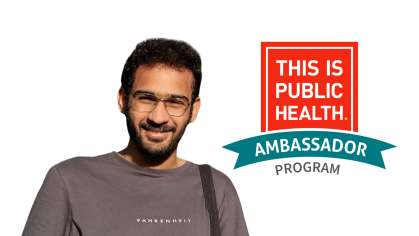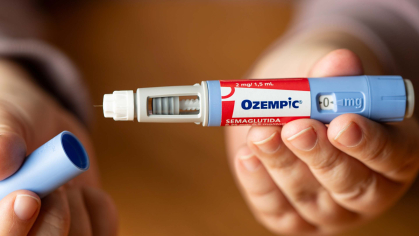From New Jersey to Manizales: Rutgers Public Health Students Explore Global Health Equity in Colombia
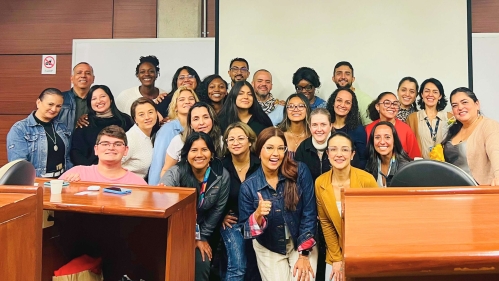
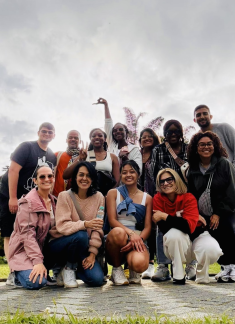
Students, faculty, and staff from the Rutgers School of Public Health recently returned from a deeply enriching study abroad experience in Manizales, Colombia.
The experience provided students with an immersive opportunity to directly engage with community-based organizations, public health agencies, researchers, educators, and community leaders dedicated to addressing health inequities in Latin American communities.
Led by Rafael E. Pérez-Figueroa, Associate Dean for Community Engagement, Population Health, and Public Health Service and associate professor in Rutgers School of Public Health’s Department of Urban-Global Public Health, the study abroad course Health Inequities in Latin American Communities was hosted in collaboration with the Universidad Autónoma de Manizales (UAM).
Students from the Rutgers School of Public Health and UAM, along with representatives from community-based organizations, participated in lectures, site visits, community tours, and cultural exchanges to deepen their understanding of critical health inequities manifested in Manizales, the U.S., and across Latin American communities.
"Students were fully engaged—both in the classroom and during our site visits,” said Pérez-Figueroa, who was also the instructor of the study abroad course, along with UAM instructors. “The lectures and discussions elicited vivid conversations around health inequities, exploring how these challenges manifest in the Colombian context and drawing powerful connections with broader issues across Latin America and the United States.”
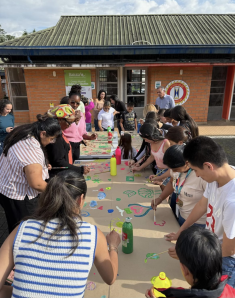
The success of the program was made possible by the commitment and collaboration of many, including Michelle Ruidíaz-Santiago, executive assistant in the Department of Health Behavior, Society and Policy at the Rutgers School of Public Health, who helped coordinate the trip and accompanied students during the program.
"Our students developed strong connections, not only with one another, but with students from UAM and the local community,” said Ruidíaz-Santiago. “Students from both locations shared how the experience helped shape and strengthen their commitment to public health and Latin American communities.”
During visits to community-based organizations, students observed firsthand how local communities are addressing public health challenges such as violence, limited access to healthcare, food insecurity, poor nutrition, and the health needs of vulnerable older adults.
On one of the course site visits, students went to Nutrir, a community-based organization that provides nutritional programs for pregnant women and children in under-resourced areas of Manizales. Another organization students visited, Chispas de Esperanza, offers health promotion and after-school services for children affected by structural violence and poverty.
Under the leadership of Dr. Pérez-Figueroa and Michelle Ruidíaz-Santiago, we were immersed in an experience that brought public health to life in the most powerful way.
Sebastian Nauta
Master of Public Health Student, Rutgers School of Public Health
Representatives from these and other organizations actively participated in the course’s academic activities, enriching classroom discussions with their lived experiences and insights. At the same time, the course helped build capacity within the local communities, equipping those working to address health inequities with valuable tools and knowledge to strengthen their efforts.
“Under the leadership of Dr. Pérez-Figueroa and Michelle Ruidíaz-Santiago, we were immersed in an experience that brought public health to life in the most powerful way,” said Sebastian Nauta, a Master of Public Health student concentrating in Global Public Health. “Being on the ground, walking the streets, speaking with local leaders, and seeing how communities persist was something no classroom could ever replicate.”
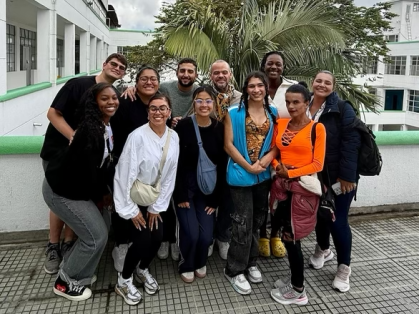
“One moment that really stuck with me was meeting members of Las Guapas–two remarkable trans women who generously shared their stories with us,” Nauta added. “After surviving immense violence and hardships, they are now leading efforts to uplift and support other trans women. Their strength, honesty, and sense of purpose were incredibly moving, and a reminder of the healing power of visibility, community, and advocacy.”
These moments grounded their academic learning in real-world action and inspired new thinking about global solidarity and community-based solutions. Immersing themselves in community experience, the course offered both critical insights and inspiration for students as they reflected on the power of public health work in action.
"A particularly memorable moment took place when UAM hosted a formal lunch and reception in our honor,” said Pérez-Figueroa. “The academic vice president and several university leaders joined us for this occasion. They served us a traditional meal typically offered in this country to honor guests. Our students were beautifully dressed for the occasion and fully engaged with our hosts. It was a heartwarming and welcoming experience for all of us.”
Through intentional intercultural exercises and shared experiences, our students built meaningful connections with the Colombian students, overcoming language barriers with openness, curiosity, and mutual respect.
Rafael E. Pérez-Figueroa
Associate Dean for Community Engagement, Population Health, and Public Health Service, Rutgers School of Public Health
Alongside the academic and service components of the course, students also had the opportunity to explore the vibrant culture, landscapes, and traditions of Colombia—adding moments of joy, connection, and discovery to their learning experience.
The cohort visited the central market of Manizales, where they learned about the impact of international treaties on global food markets and the paradox of food waste in the face of hunger. A community-based organization within the market works to rescue and redistribute food from the market to those in need. Later that day, students learned about Colombia’s rich culinary traditions and sampled regional dishes during a visit to the culinary school at UAM.
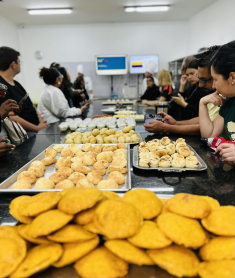
“Through intentional intercultural exercises and shared experiences, our students built meaningful connections with the Colombian students, overcoming language barriers with openness, curiosity, and mutual respect,” said Pérez-Figueroa.
Studying in Colombia during the course was just the beginning. As students return to Rutgers, they bring with them not only new knowledge but also a renewed commitment to health equity and global public health.
"Our partners at UAM were exceptional,” said Ruidíaz-Santiago. “We’re especially grateful to Dr. Brenda Herrera Serna, coordinator of the Doctorate in Health Sciences and our faculty liaison, and Dr. Julio Pérez Parra, dean of the School of Health Sciences, for their hospitality and dedication. And to members of Manizales communities, they were certainly the highlight. They opened their homes to us, and we learned so much from them.”
